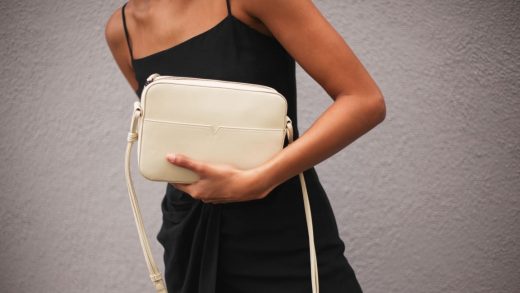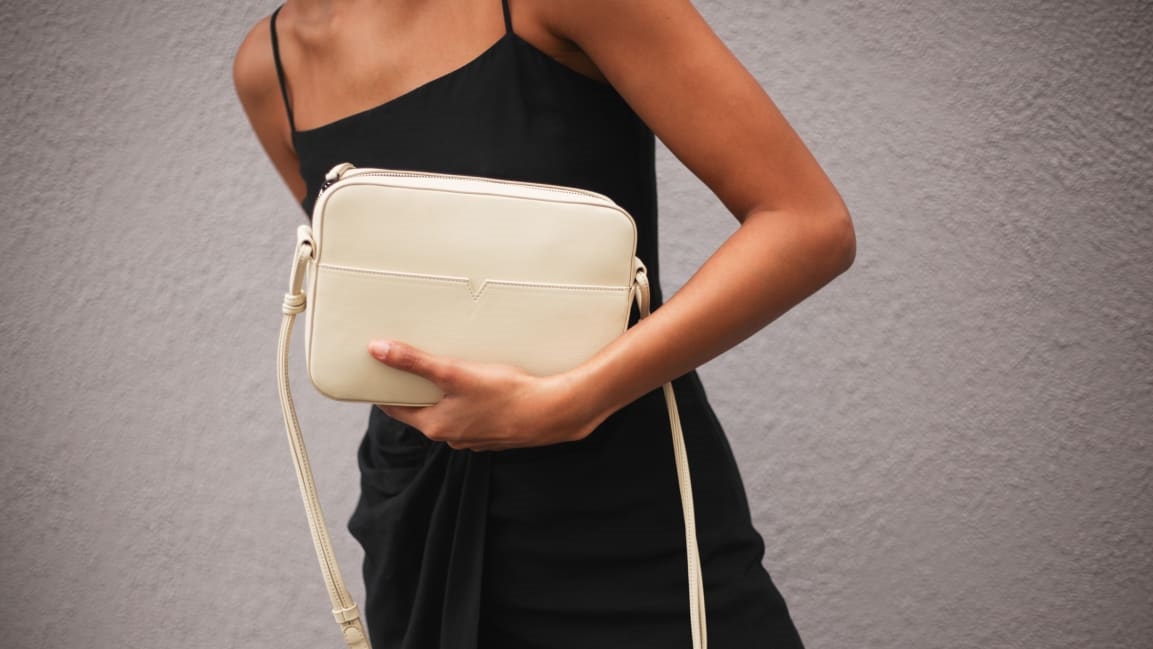How a former Audi designer is taking on fashion’s leather addiction
At first blush, Vicki von Holzhausen’s latest handbag collection looks like the leather bags she made when she launched her eponymous brand in 2015. The exterior has a delicate grain and is buttery to the touch; the interior feels like it’s made of soft suede. But these new bags aren’t leather at all: They’re made from recycled water bottles and will biodegrade at the end of their life cycle.
Many leather alternatives on the market are an improvement on cowhides, but they’re still problematic because they’re made from materials that don’t decompose. Von Holzhausen has found a solution with her new line of biodegradable handbags. And now that she’s nailed the formula, she plans to sell it to other companies. “My goal is to make traditional leather extinct,” she says.
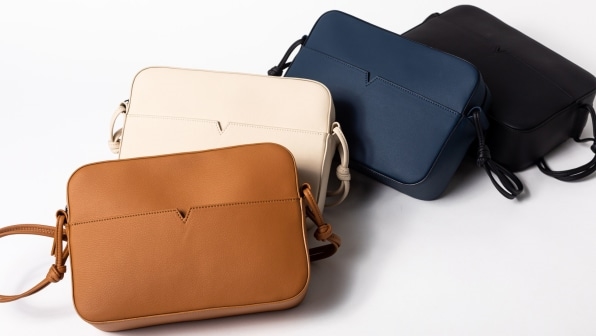
Plastic is widely used in the fashion industry because it’s cheap and can morph into a range of textures. But it’s terrible for the environment, and more companies have started to look for alternatives. Over the last few years, brands like Everlane, Adidas, and Reformation have swapped out new plastic with recycled plastic from old water bottles. While this ensures that discarded plastic gets a second life, the material still doesn’t biodegrade. It’s either incinerated, spewing carbon into the atmosphere, or ends up in oceans and landfills, where it breaks down into tiny plastic particles that end up in our rain, water, and bodies.
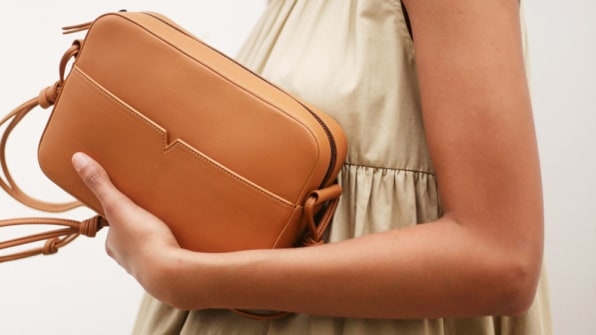
When she launched her brand, von Holzhausen developed her own proprietary recycled plastic material, called Technik-Leather, which mimicked leather, but used less carbon and water than the real thing. But with this new line, she wanted to figure out how to make the plastic biodegradable. She ultimately landed on a material that has been injected with an organic additive that makes it biodegrade in a landfill. The additive attracts a particular microbe already found in that environment, which breaks down the chemical chains that hold the plastic together, causing it to completely decompose within five years.
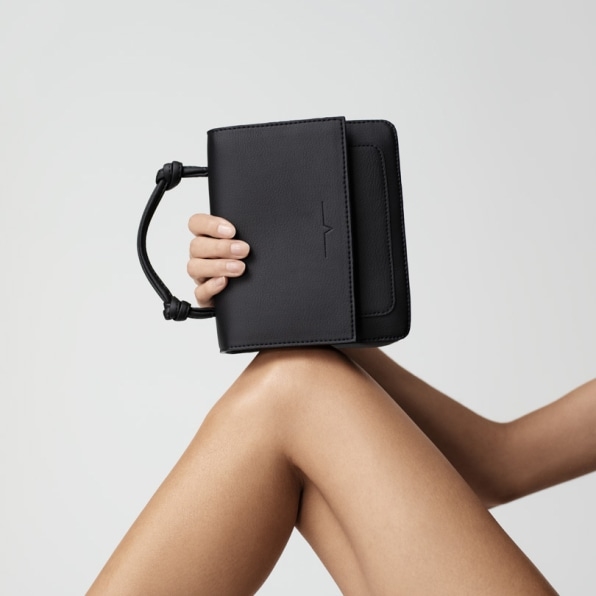
Von Holzhausen is calling the material Technik-Leather 2.0, and she plans to use it for all her handbags going forward. (For now, it’s available in two styles that both cost $350.) But in some ways, it’s just the beginning. She’s exploring other technologies that might allow the material to be recycled or made from plant-based materials that might neutralize the carbon emitted. Her goal is to sell these new materials to other businesses that want to swap out traditional leather with more eco-friendly alternatives. “Ultimately, I see myself building a materials innovation company,” she says.
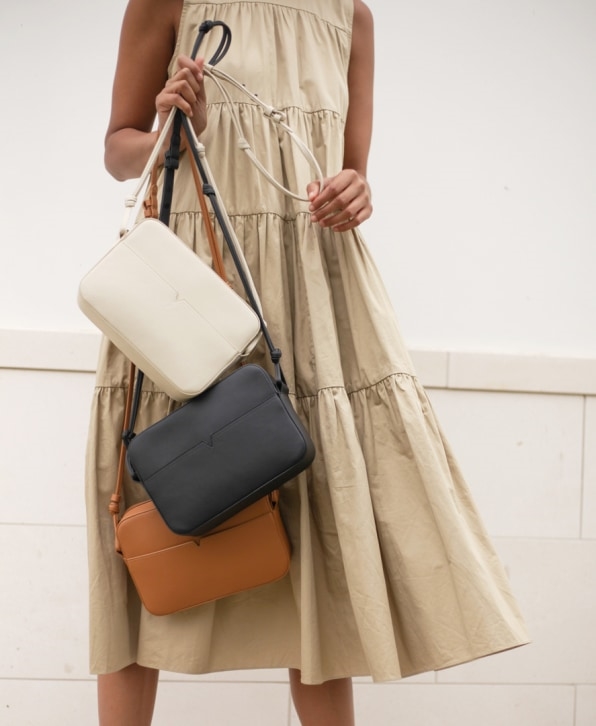
Launching a luxury handbag startup was a bit of a career twist for von Holzhausen, who spent a decade designing luxury car interiors at Audi and Mercedes Benz. (She’s married to Franz von Holzhausen, Chief Designer at Tesla.) As she sourced leather from around the world, she began to grasp how devastating the material is on the environment. Cattle farming is the largest contributor to greenhouse emissions—more than planes, trains, and cars combined. Most leather tanneries spew toxic chemicals into the environment, harming the planet and their workers. “There’s a growing awareness about this, but while people have responded to plant-based alternatives to beef, like Impossible Foods, they haven’t been as open to alternatives to leather,” von Holzhausen says.
She launched her handbag line three years ago in an effort to change this: Her debut line contained pieces made from both leather and Technik-Leather, to show customers how similar they looked and felt. Traditionally, leather alternatives have been poor imitations of the real thing, so von Holzhausen worked hard to perfect the texture of Technik-Leather. It contains seven layers of recycled plastic fabric including an ultra-thin layer of foam for suppleness and a resin imprinted with a subtle grain.
As the brand grew, von Holzhausen started removing real leather from the collection and found it didn’t impact sales at all. In fact, the brand went on to partner with Apple on a set of tech accessories made from Technik-Leather that appears in every store. In the midst of the coronavirus crisis, in which luxury sales have been down by as much as 60%, von Holzhausen says her sales have been up thanks, in part, to a collection of household products, like coasters and placemats.
Now, she’s ramping up to sell her materials to other companies. “Part of the reason I launched the business was to demonstrate that consumers were willing to buy luxury products that weren’t made from leather,” she says. “But the only way to really have an impact is if other brands follow suit.”
(38)

